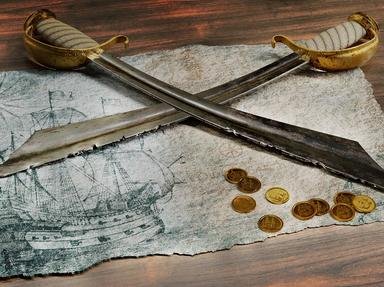Quiz Answer Key and Fun Facts
1. Prior to Pompey's famous encounter with the pirates, he had been given a title. What was it?
2. Some sources state that Julius Caesar had previously taken care of the Cilician pirates when he had five hundred of them crucified in 75 BC. According to Plutarch, what was going on in Rome which enabled the pirates to make a come back by 68 BC?
3. The fact of the matter is that many people were joining the ranks of the Cilician pirates by 68 BC. In Plutarch's "Life of Pompey", it is stated that the new pirates especially came from which group?
4. The Cilician pirates had become so powerful by 68 BC, that they controlled how many cities according to Plutarch?
5. In Plutarch's "Life of Pompey", for what reason did the Romans send Pompey to "recover the seas from the pirates?"
6. In Plutarch's account it was written that Pompey was given power to get rid of the pirates in what area?
7. Plutarch said that Pompey's power was absolute not only on the sea, but also in the adjacent mainland for the space of four hundred furlongs from the sea.
8. Plutarch said that Pompey was given 500 ships, 120,000 foot soldiers, and 5,000 cavalry to defeat the pirates.
9. How long did it take Pompey to get rid of the pirates?
10. What was Pompey's general policy as far as dealing with the captured Ciclician pirates?
Source: Author
ponycargirl
This quiz was reviewed by FunTrivia editor
bloomsby before going online.
Any errors found in FunTrivia content are routinely corrected through our feedback system.
